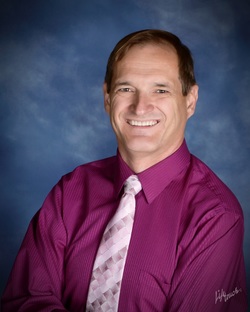
Rev. Peter C. de Vries, Ph.D. has served Old Union since November 1993.
To learn more about Rev. Dr. de Vries, go to FaceBook, Linked-In, or his blog.
FROM THE PASTOR:
Knowledge is a good thing. I suppose that’s exactly what you’d expect to hear from a pastor with PhD and a giant library. Knowledge is especially valuable when it comes to understanding our faith. But knowledge isn’t everything, and it isn’t the most important thing. That’s why Paul wrote to the Corinthian Christians that “knowledge puffs up while love builds up” (1 Corinthians 8:1). This was how he began his response to their request for guidance over an issue that was dividing the church: was it permissible to eat meat that had been sacrificed to idols?
Perhaps a bit of background information can help us understand why this was such a big deal for the Corinthians. Most of the meat that was being sold in the marketplace had come from one of the many pagan shrines in and around the city. And because they had no USDA labels, it was impossible to know if that cut of beef had come a pagan sacrifice or not. The only practical way to avoid eating meat from a pagan shrine was to become a vegetarian and not eat meat at all. Some Corinthian Christians believed that that was what their faith required of them, while others didn’t think that it mattered. So, they asked Paul for some guidance: some knowledge or wisdom to steer them in the right direction.
Paul did give them an answer: “Food does not bring us near to God; we are no worse if we do not eat, and no better if we do.” In other words, he didn’t believe that it mattered if your lambchops came from a pagan sacrifice or not. However, this wasn’t the main point in his reply. The knowledge of what is right or wrong (eating pagan-sacrificed food or not) didn’t matter nearly as much as acting out of love. Even more important than the history of your hamburger was acting in a way that supported and strengthened your brother and sister in Christ.
Whether or not to eat meat sacrificed to an idol wasn’t the real issue. The more important topic of consideration was whether or not your actions demonstrated love for your fellow believers. If, by exercising your freedom in Christ and eating meat you offended or confused another Christian, then you shouldn’t eat it. Your “knowledge” that it’s OK to eat this kind of meat doesn’t build anyone up. But refraining to do so out of consideration of others does.
When Paul addressed the same issue in his letter to the Romans, he encouraged them to “make up your mind not to put any stumbling block or obstacle in the way of a brother or sister….All food is clean, but it is wrong for a person to eat anything that causes someone else to stumble” (Romans 14:13, 20).
Whether or not to eat meat that had been sacrificed to an idol is not an issue for us, but we still encounter many moral or ethical dilemmas. If we focus on what is “right” or “wrong,” we give priority to knowledge that “puffs up,” instead of love that “builds up.” When deciding how to act in a perplexing situation, we should ask not only “What does God allow?” but “How will my actions affect others?”
In Christ,
Peter
Old Union Presbyterian Church | 200 Union Church Road, Mars, PA 16046
724-538-8672 | [email protected]
724-538-8672 | [email protected]